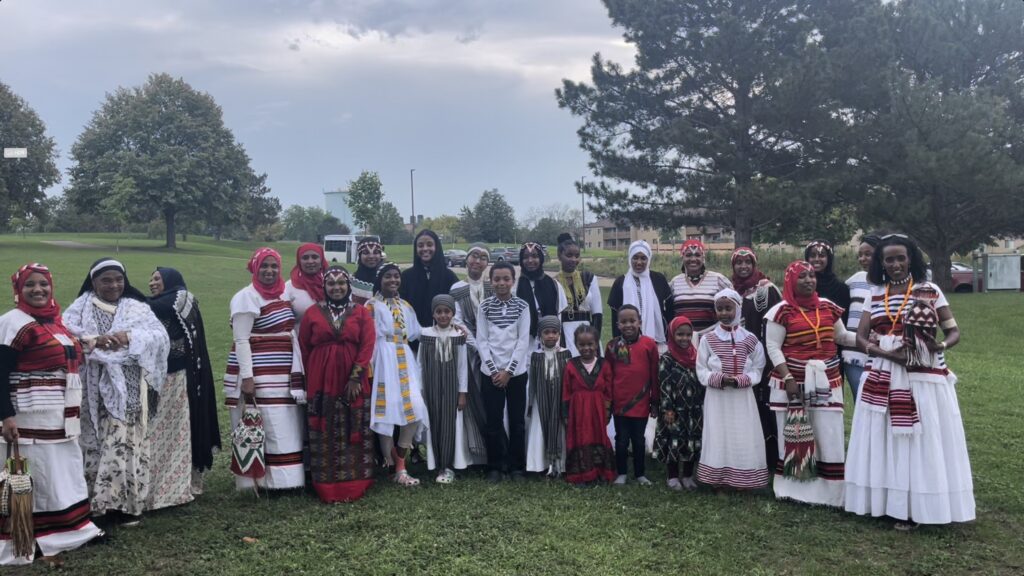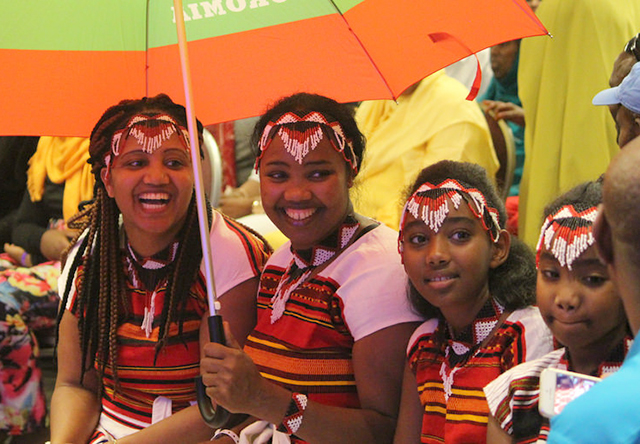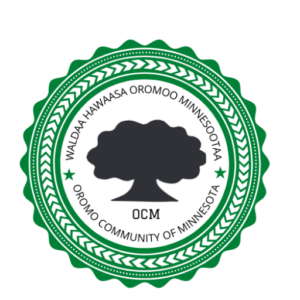Oromo Community of Minnesota
Over 100,000 vibrant and thriving community.
About Us
Oromo Community of Minnesota (OCM)
The Oromo Community of Minnesota (OCM) began as an informal mutual assistance association, founded to support Oromo immigrants in Minnesota. In 1985, it was formally established as a community organization, and in 2000, it achieved 501(c)(3) nonprofit status. The organization was created to help the growing number of Oromo refugees and immigrants successfully settle and integrate into life in Minnesota, particularly in the Twin Cities.
Today, OCM serves a vibrant and thriving community of over 100,000 members, making it the second-largest East African immigrant group in the state of Minnesota. It also represents the largest Oromo population outside of Oromia/Ethiopia. In addition to its headquarters in Minnesota, OCM provides leadership and support to over 37 Oromo communities across the United States
As a key resource and advocate for Oromo Immigrants, OCM continues to foster cultural connection, support community development, and promote the well-being of Oromo individuals and families nationwide.
Mission
The mission of the Oromo Community of Minnesota (OCM) is to enhance the quality of life for all individuals in our community living in Minnesota. We strive to empower and support our members by providing access to critical resources and services, fostering a sense of belonging, and promoting cultural and social integration. Our vision is a society where all people, regardless of background, have equal access to social services and opportunities, living in harmony and unity.


Governance of the Oromo Community of Minnesota (OCM)
The Oromo Community of Minnesota (OCM) is governed by a 9-member Board of Directors, which plays a central role in overseeing the organization’s activities and ensuring that it serves the needs of the Oromo community effectively and efficiently. A unique aspect of OCM’s governance structure is that the Board of Directors is elected directly by the members of the community.
OCM fosters a democratic and community-driven approach to leadership, where the members—those who contribute at least $5 per month to support the community—are eligible to vote for the 9 board members. This inclusive process ensures that community members have a direct say in the leadership and direction of the organization.
- Eligibility to Vote: Any community member who contributes $5 or more per month to OCM is eligible to vote in the board elections.
- Election Cycle: Board members serve a two-year term. The most recent election, as mentioned, took place on November 14, 2015.
The Board’s leadership is thus shaped by active participation from those who are committed to supporting the community financially, ensuring that the organization remains grounded in the values and interests of its members.
OCM is known for its accountable and effective leadership, which is central to its reputation within the Oromo community and beyond. This effective governance is driven by:
Close Oversight of Management:
- The Board is deeply involved in overseeing the management of the organization to ensure its activities align with the community’s needs and strategic goals. This includes monitoring the implementation of programs, managing resources, and assessing the effectiveness of services offered by OCM.
Clear Principles and Policies:
- OCM operates under clear principles and policies that prioritize transparency, accountability, and effectiveness. The organization ensures that all decisions, both at the leadership and operational levels, are made in an open and transparent manner.
Board Engagement:
- The Board’s engagement is integral to the organization’s success. The members are not only responsible for making strategic decisions but are also expected to participate actively in the day-to-day functioning of the organization. This could involve serving on committees, assisting with events, and working alongside employees and volunteers.
Volunteer Involvement:
- In addition to the formal Board members, OCM relies heavily on its volunteers to help implement programs and foster community connection. The commitment of volunteers further strengthens the sense of community within OCM and helps ensure the organization operates effectively on the ground.
The two-year election cycle helps ensure that leadership within the organization remains dynamic, and that new voices can emerge while maintaining continuity in governance. Given the importance of the Board’s role, these elections are seen as an opportunity for the Oromo community in Minnesota to reaffirm its values and ensure that the leadership is aligned with their evolving needs.
OCM's emphasis on accountability, effectiveness, and transparency has fostered a positive reputation for the organization. By holding regular elections and adhering to clear governance structures, OCM ensures that leadership remains accountable to the community it serves, and that decisions are made with the community's best interests in mind.
The governance structure of the Oromo Community of Minnesota is a testament to the organization’s commitment to community involvement and democratic principles. With the active participation of its members, regular elections, and a board that prioritizes transparency and accountability, OCM remains a trusted and effective institution in serving the Oromo people in Minnesota. This democratic process not only strengthens the organization but also ensures that OCM’s programs and initiatives reflect the collective voice of the community.


